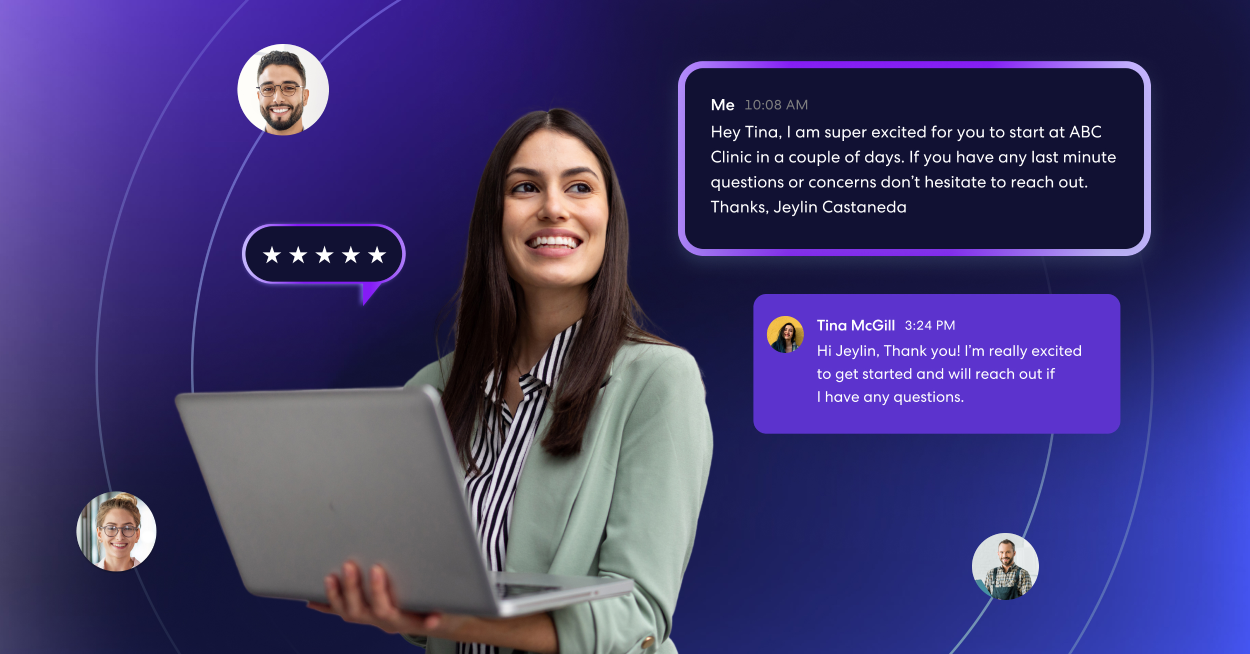
Artificial intelligence is rapidly reshaping talent acquisition. Chatbots screen candidates, algorithms rank résumés, and automated scheduling eliminates back-and-forth emails. These efficiencies matter, especially in enterprise organizations managing thousands of applicants each month.
But in the race to adopt AI, it’s easy to lose sight of what candidates actually want. According to a 2024 survey, one-third of job seekers assume they’ve been ghosted if they don’t hear back within a week. [Criteria Candidate Experience Report, 2024]. Another study found that when job ads disclose the use of AI — and explain how it works — candidate trust actually increases. [Journal of Business and Psychology, 2023].
The lesson is clear: AI may make hiring faster, but it’s empathy and transparency that make it effective.
H1: Why Human-Centered Hiring Matters
Candidates don’t just apply to jobs — they evaluate the people and culture behind them. A hiring process that feels impersonal can quickly damage employer brand. In fact, the Talent Board’s Candidate Experience Benchmark Research shows that poor communication is the leading driver of candidate resentment. [Talent Board, 2023].
Human-centered hiring acknowledges that while AI can accelerate workflows, candidates still want to feel heard, respected, and informed. And with regulators and courts scrutinizing AI hiring practices — from New York City’s Automated Employment Decision Tool law to ongoing litigation against vendors like Workday — organizations can’t afford to leave humans out of the loop. [NYC DCWP, 2023] [Reuters, 2024].
H2: Three Practical Ways to Keep Hiring Human
Candidates are more open to AI when they know what’s happening. If your process includes résumé screening or video interview analysis, explain it in plain language:
Transparency builds trust while also preparing you for compliance with emerging laws in the U.S. and EU.
2. Communicate consistently.
Silence is one of the fastest ways to alienate candidates. Establish service-level agreements (SLAs) for recruiter communication, such as:
These commitments don’t just improve candidate satisfaction — they reduce attrition from the funnel and boost employer reputation.
3. Keep empathy in the loop.
AI can handle repetitive tasks, but humans are still needed for nuance:
These human interactions are where employer brand is most clearly felt.
H3: The Compliance Imperative
Human-centered hiring isn’t just about experience — it’s also about risk management. In July 2024, a federal judge ruled that Workday must face a proposed class action over alleged bias in its AI hiring tools. The decision underscores a growing trend: employers are accountable for the technology they use, even when it’s supplied by a vendor. [Reuters, 2024].
Meanwhile, the EU’s AI Act — expected to take effect in 2026 — classifies many employment-related AI systems as “high-risk,” requiring extensive documentation, bias monitoring, and human oversight. [European Commission, 2023].
For enterprise TA leaders, the message is clear: integrating human judgment isn’t optional, it’s a compliance safeguard.
Conclusion
AI can streamline the hiring process, but candidates don’t measure their experience in milliseconds saved. They measure it in clarity, respect, and trust.
Human-centered hiring means:
By balancing efficiency with empathy, TA leaders can adopt AI responsibly while strengthening employer brand, improving candidate experience, and minimizing compliance risk.